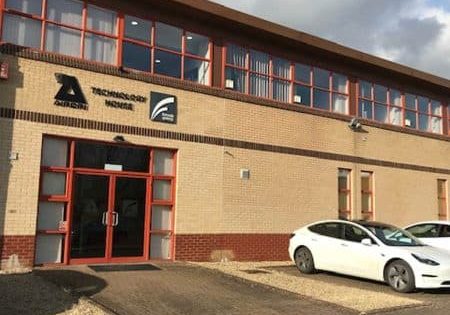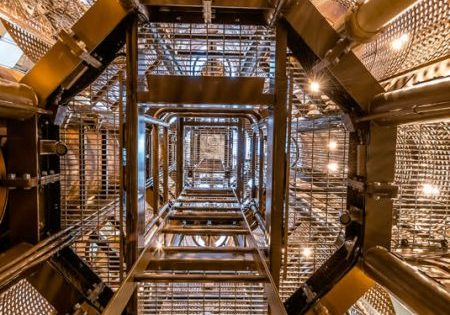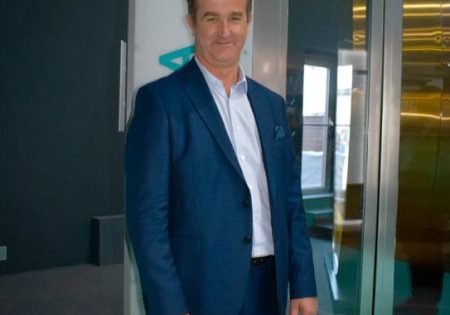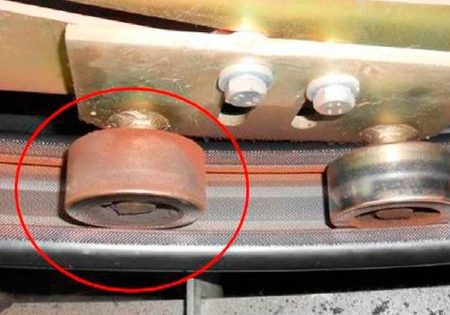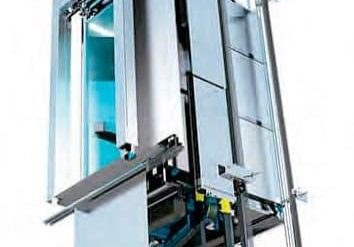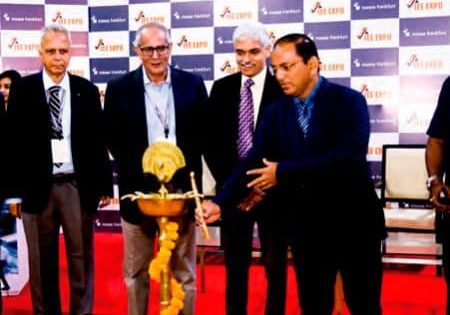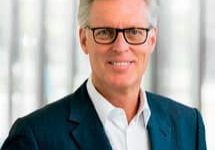Academic Exchange
Apr 1, 2020
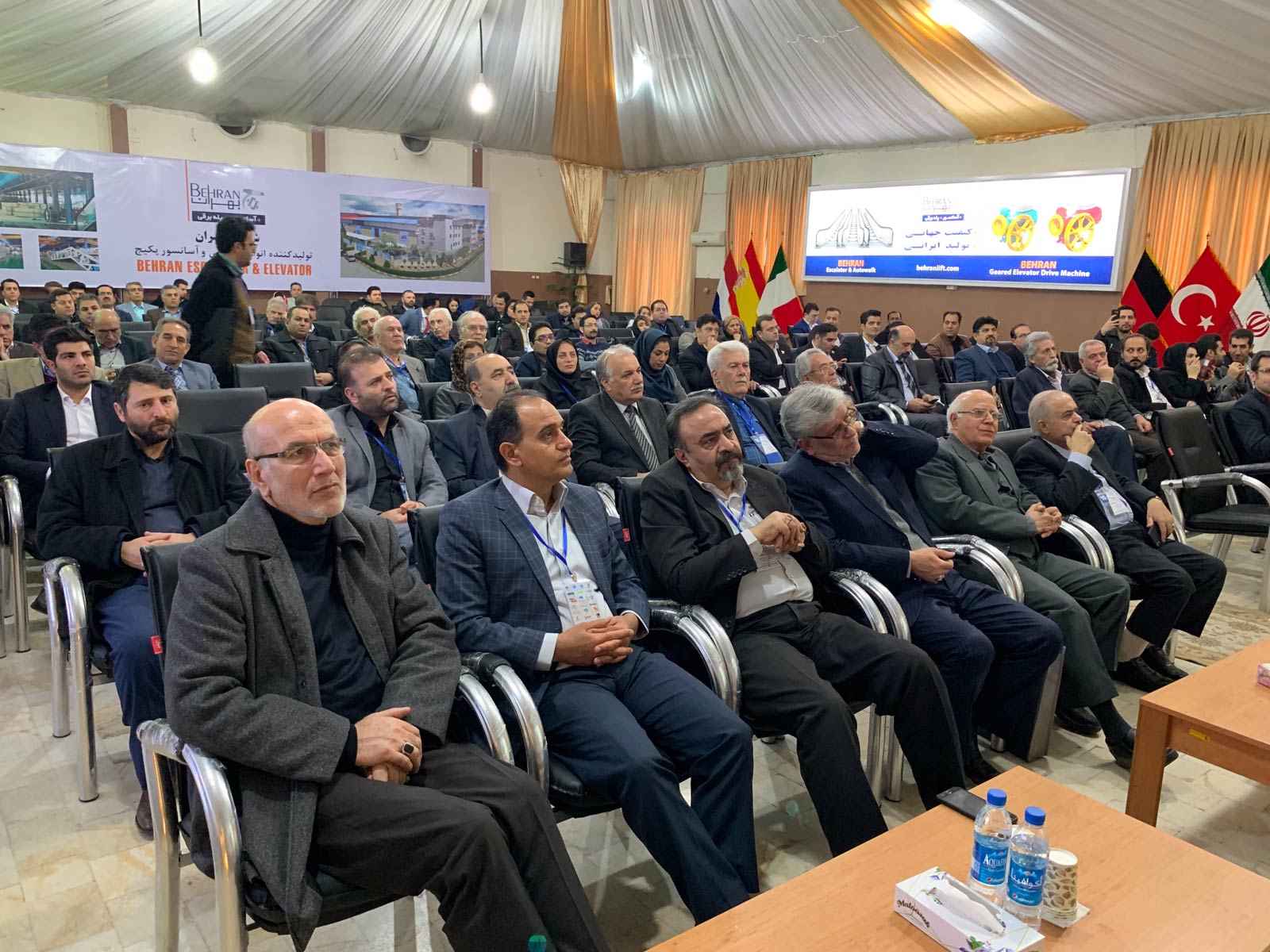
Scholars, engineers and industry professionals gather in Tehran for the 10th International Seminar on Elevators and Escalators.
Vertical-transportation (VT) experts, including professors, industrialists and foreign guests, gathered for the 10th International Seminar on Elevators and Escalators on February 20 at the Koosha International Center of Applied Science and Technology in Tehran, Iran. The event was held in cooperation with the University of Applied Science and Technology of Tehran and Iran’s union of elevator, escalator and affiliated services.
Attending were Dr. Mohammad Hasan Pishbin, manager of the University of Applied Science and Technology (Tehran-West Branch), and Eng. Abbas Abrishami, the manager of Iran’s elevator union.
The seminar opened at 9 a.m. with the reading of the Quran and the Iranian national anthem. Then, Dr. Samaneh Sajadi, the educational deputy of Koosha College, thanked the guests and sponsors and declared that, once again, organizers are utilizing their elevator industry knowledge to achieve goals for the 10th time and, given the tough economic circumstances, were grateful for the attendance of the gathered industrialists and professors.
Sajadi continued by noting that countries don’t progress unless they increase the wealth in their communities, and gaining wealth is possible because of the strong relationship between industry and university. This seminar, with the motto, “Superior thought with the commercialization of international superior products,” aimed to raise the elevator industry around the world.
Next, Abrishami, manager, Union of Elevator, Escalator and Affiliated Services, spoke on the elevator industry and the necessity of precise planning to realize accomplishments. He emphasized the need to support training centers to develop education in this area.
During the opening ceremony, Pishbin discussed the weakness of the university/industry relationship, emphasizing the important role such partnerships play in country development. He said symposiums and seminars such as this one work to improve these relationships. He then expressed gratitude toward the guests from Turkey and Germany for their presence.
Bülent Yılmaz, managing director of ELEVATOR WORLD Turkey and EW Middle East, as well as representative for Interlift, spoke about The Elevator Show (TES), an international trade fair for elevators, components and accessories scheduled for September 7-9 in Dubai. He spoke on the idea behind TES, its organizers and the venue, and mentioned its role in elevator industry improvement. He declared it the perfect place to do business and network with international manufacturers, suppliers, installers, specifiers, developers, architects, engineers and investors, and to learn about the latest in elevator technology, designs and services. Finally, he invited all elevator industrialists and corporations to the show.
Then, Eng. Mohammad Amin Mousavi, director general of the Elevator and Escalator Department of the Tehran Standards Organization, presented a speech on the Technical Committee standard. He said all in the audience should support the country’s internal manufacturers and have their own standard. In the end, he invited all elevator industry activists to cooperate with the standards organization in matters regarding standards.
Next, Süleyman Özcan, managing director of Liftinstituut Solutions in Turkey, as the second international lecturer, presented his article on maintenance and the correct approach to raise quality, which fascinated the audience. He mentioned that global maintenance organizations have developed many methods by which to maintain their portfolios efficiently. This efficiency is usually based on a balance between time spent per unit, and components adjusted/checked per maintenance interval. The question posed was, “Are these efficient maintenance visits really beneficial to the clients?”
Every moving mechanical component, every current-carrying electrical component and every electrically controlled electromechanical component wears out slowly and, therefore, has a limited lifespan. In the end, the more wear that occurs, the shorter the lifespan. The wear on mechanical parts is caused by mechanical forces like friction, torque, direct force or environmental conditions that cause the materials to weaken — conditions like corrosion, humidity and temperature differences. Wear for electrical parts, on the other hand, is caused by the effects of mechanical forces that act on physical parts of such electromechanical components as relays and contactors. Also, vibrations generated by the system causing loosening of fixing screws, cracking of soldering points, loosening of cables, malfunctioning of integrated electronic elements on electronic boards, heat generated by electricity, fading of data inside integral chips, and environmental effects of temperature, humidity and corrosion weaken the materials of electronic components.
Finally, Özcan said that today’s popular maintenance methodologies’ objective is to gain time and money, while achieving a good maintenance regime, where success is measured by number of callbacks and service outages. However, when doing that, the applied systems force people to work like software, having one algorithm for all kinds of uses. In the end, neither service providers nor owners benefit from the systems as much as is hoped. To reach a higher efficiency for not only the providers, but for all parties, these systems must focus more on circumstances and persons. To do that, maintenance must move away from static approaches and become more alterable and unit-focused, as this will allow the industry’s reputation in general to improve.
Next, Mousavi gave a talk on the Lifts Directive. He mentioned that having the Lifts Directive enables companies to develop, design, manufacture and install any type of lifts covered by the directive; introduce innovations and technologies not yet included in any lift-related standards; deviate from prescriptive harmonized standards to introduce more innovative and competitive solutions; reduce the involvement of third-party certification bodies, and reduce costs and concept-to-market time; and develop a competent R&D and engineering organization with the necessary freedom and related responsibilities to innovate and introduce safe solutions and products into markets.
Then, Sina Khanbeigi from 110 Elevator Co. presented his article on technical considerations in choosing gearless motors. He said that traffic analysis in technical matters of gearless motor technology has a significant role, and clarified the duty cycle change and destructive effects of increasing temperature on the motor’s lifetime.
Eng. Amir Ebadi, an elevator inspection instructor, then gave a presentation on safe and standard lift installation on existing buildings. He mentioned that, in recent years, environmental restrictions, cultural effects and lifestyles have changed architecture so much that existing buildings have no place or space for elevator installation and no suitable conditions for pit and overhead. International organizations that are considering the problems inherent in adding elevators to these older buildings have analyzed these problems so that they can identify the risk and minimize the jeopardy.
After that, Eng. Hamid Zaremoqadam from Caspian Asanbar Co. gave a talk on the analysis of machine-room-less (MRL) elevator design in which the counterweight is located on the back of the car. He explained the advantage of MRL systems in construction, especially in buildings with historical or municipality restrictions.
Then, Eng. Bahram Karimi from the Tehran Subway gave a presentation on “Maintenance Optimizing of Escalators in Order to Reduce Failure Rates by Identifying Affective Latent Factors, by Applying Factor Analysis and AHP Technique, Case Study: Tehran Urban and Suburban Railway Operation Co.” He also discussed the extreme importance of preventive maintenance for escalators of subway station escalatorss.
Next, Dr. Amir Radfar gave a talk on the iMOVE organization and how to collaborate with it on training. He said that types of training are product exports (e.g., instructional material and training equipment, learning environments and workshops for training institutions and e-learning programs), services implemented abroad (e.g., training of trainers, developing tailor-made curricula, consulting regarding the setup and organization of training institutions) and other services, such as training of persons from other countries.
After that, Eng. Morteza Emamirad presented Dr. Mohammadreza Eskafi’s article on “Optimization of Elevators Dispatching.” Although dispatching can be performed with relatively simple rules, he said there are opportunities to improve performance by applying more intelligent algorithms. Using optimization code in the Python programming language minimizes waiting time, maximizes mental comfort and minimizes energy consumption. He concluded that the main contribution is the development of a software simulation tool written in Python for performance evaluation of VT systems with elevator group control. The simulator can precisely model the operation of systems and serves as a useful tool for measuring their performance with respect to waiting time, service time and other important performance metrics. Then, results (waiting time and service time) are optimized by a genetic algorithm.
Eng. Ali Kazerooni from Datis Co. then gave a talk on “Hybrid Predictive Control Technology,” a novel technology for motor speed control in closed loop systems. He modeled the predictive controller as Figure 1. He then illustrated the electrical model of the motor as Figure 2.
Next, Eng. Mojtaba Eldoromi gave a lecture on “Dynamic Analysis of Traction Elevators” with a state space equation. A tensile lift driven by a permanent-magnet electric motor was analyzed, control and visibility forms were obtained and necessary parameters were analyzed for control parameters. The Lyapunov equation analyzes the internal stability of the system. The results show that the system can be optimized in terms of energy consumption by constantly considering its parameters as much as possible.
Eng. Shahram Mardomi from the Union of Elevator, Escalator and Affiliated Services spoke next on the importance of training in this industry and its role in elevator industry promotion. Finally, he mentioned that the board of the ninth syndicate of elevators and escalators has already published a book on Lift Designer software and investigated its technical capabilities.
Then, a lottery drawing was conducted by Mousakhani Co., and the winners received their awards.
Also during the seminar, qualified articles were presented in the meeting room. There were five articles on which the authors had lectures. Of 52 articles that had been sent to the seminar secretariat, 23 were accepted according to the scientific committee’s judgment. Among the 23 articles, 14 were presented.
Commendation letters were bestowed to all foreign guests, participating elevator companies, elevator and escalator industry experts, outstanding professors of Koosha College in the field of elevators and the presenters of the best articles.
Organizers expressed appreciation for the cooperation of all industrialists and executive staff, especially Behran Lift Co., Mousakhani Co. and Elco Co. as the main sponsors, and ELEVATOR WORLD Turkey as media sponsor. Also, grateful recognition was given to Abbas Shakeri for his support as our first sponsor.
All participants were invited to the 11th International Seminar on Elevators and Escalators, planned for February 18, 2021.
Get more of Elevator World. Sign up for our free e-newsletter.


